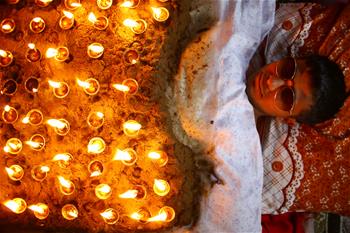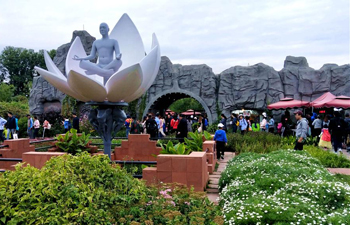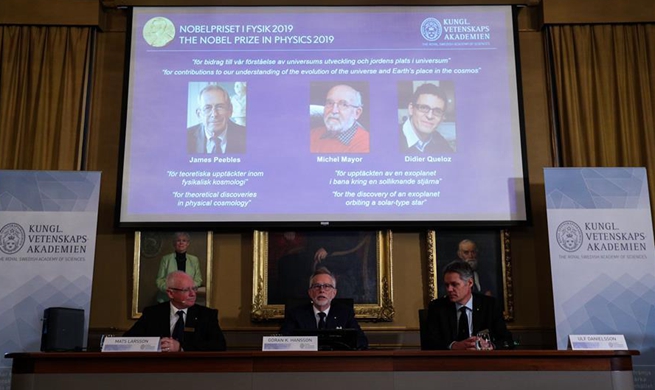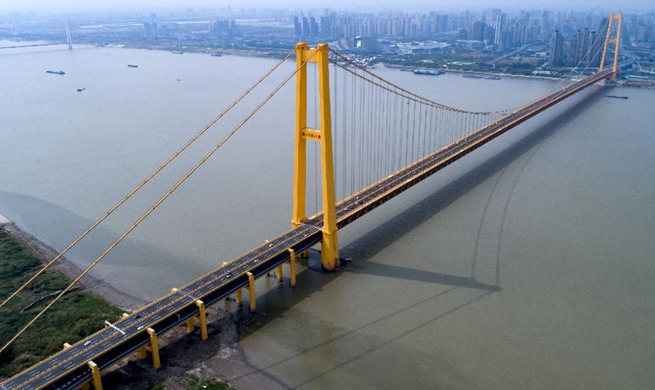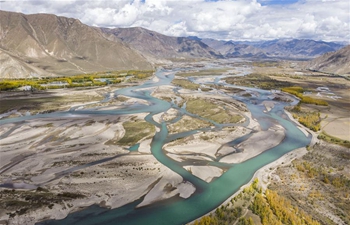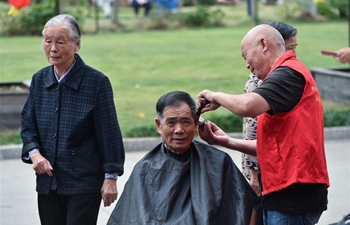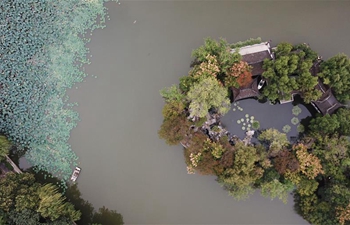BERLIN, Oct. 8 (Xinhua) -- Katharina Kohse-Hoinghaus, a world-renowned chemist from Bielefeld University in Germany, has stressed the importance of international scientific cooperation to solve problems such as climate change and infectious diseases that cannot be addressed by a single country.
In a recent interview with Xinhua, the chemist, who has been honored with China's International Science and Technology Cooperation Award, said the welfare of the planet depends a lot on China because of its large population and economic strength and growth.
Kohse-Hoinghaus said her contacts with China started more than a decade ago, and she visits Chinese academic hubs several times per year.
"Now when I come to China, I see a lot of electric cars and thousands of kilometers of new high-speed railways being built," she said.
She also witnessed China's shift from direct problem-solving to more fundamental science research in recent years.
"The focus of many Chinese professors I know is now more on fundamental problems, which is important for innovation in the future," she said.
Interdisciplinary cooperation has become another trend in China.
Bielefeld University has a long tradition of encouraging interaction between different disciplines, even between sci-tech fields and linguistics or history, from its curriculum offerings to its huge open space for academic communication on campus, according to Kohse-Hoinghaus.
She mentioned China's fast-growing photovoltaic industry as an example. "It has multiple facets and concerns semiconductor physics, energy storage, engineering and even economics."
"I think it is short-sighted to focus only on one aspect of science, because many questions we face today are interdisciplinary," she said.
China's scientific stature in her field has improved a lot in the last decade, Kohse-Hoinghaus said.
"When I was the editor-in-chief of the international journal Combustion and Flame, we had at first only a few submissions from Chinese authors, and most of them failed to meet international publication standards. But now there is a substantial share of high quality."
"It's gratifying to see how international these young academic people have become. They have spent several years abroad in foreign institutes, and then been hired back and built up their own labs in their original countries," she said.
"This is not only because they like to return to their families and traditions, but also because of the resources that their countries like China can provide these young talents with to pursue their ideas," she added.
Kohse-Hoinghaus has given lectures in many Chinese universities and institutes and has received invitations as a guest professor in the past years.
Yet some valuable information may only be available in Chinese.
She said the language problem would be a barrier for some foreign experts to work long-term in a non-English-speaking country like China, but short-term academic visits supported by institutions have proven as very helpful to promote scientific cooperation.
